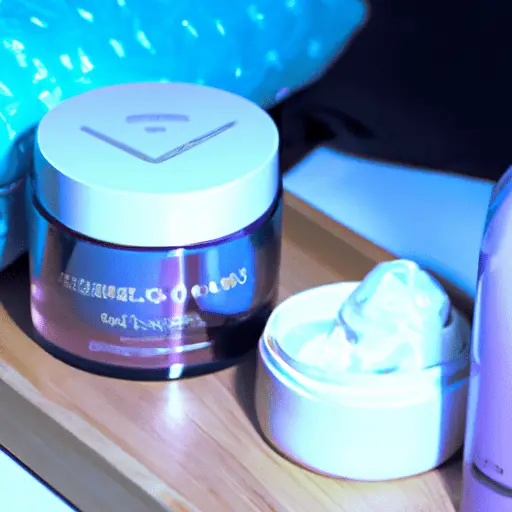-
Table of Contents
- Nighttime Skincare Routine: Rejuvenate and Repair Your Skin While You Sleep
- Key Takeaways
- The Importance of Nighttime Skincare
- Step-by-Step Nighttime Skincare Routine
- 1. Remove Makeup
- 2. Cleanse
- 3. Apply Active Ingredients
- 4. Moisturize
- FAQ Section
- 1. Why is a nighttime skincare routine important?
- 2. Can I use the same skincare routine in the morning and at night?
- 3. How often should I follow a nighttime skincare routine?
- 4. Can I skip moisturizer if I have oily skin?
- 5. How does sleep affect my skin?
- Conclusion: The Power of Nighttime Skincare
- Key Takeaways
Nighttime Skincare Routine: Rejuvenate and Repair Your Skin While You Sleep

[youtubomatic_search]
Key Takeaways
- A consistent nighttime skincare routine can help rejuvenate and repair your skin while you sleep.
- Removing makeup and cleansing the skin are crucial first steps in any nighttime skincare routine.
- Using products with active ingredients like retinol and hyaluronic acid can help repair skin damage and promote skin health.
- Moisturizing before bed helps to lock in hydration and nourish the skin overnight.
- Getting adequate sleep is essential for overall skin health and can enhance the effectiveness of your nighttime skincare routine.
The Importance of Nighttime Skincare
Our skin is the largest organ of our body and it works tirelessly to protect us from external factors. However, it’s during the night when our skin goes into repair mode, making the most of the products we apply and rejuvenating itself for the next day. A consistent nighttime skincare routine can help optimize this natural process, leading to healthier, more radiant skin.
Step-by-Step Nighttime Skincare Routine
Creating a nighttime skincare routine doesn’t have to be complicated. Here are some key steps to follow:
1. Remove Makeup
According to dermatologist Dr. Hadley King, “Sleeping in makeup can lead to clogged pores, breakouts, and skin irritation.” Therefore, it’s crucial to remove all makeup before bed. You can use a gentle makeup remover or micellar water for this step.
2. Cleanse
After removing makeup, it’s important to cleanse the skin to remove any remaining makeup, dirt, and oil. A gentle cleanser that doesn’t strip the skin of its natural oils is ideal.
3. Apply Active Ingredients
Active ingredients like retinol and hyaluronic acid can help repair skin damage and promote skin health. Retinol is known for its anti-aging properties, while hyaluronic acid helps to hydrate the skin.
4. Moisturize
Moisturizing before bed helps to lock in hydration and nourish the skin overnight. Look for a moisturizer that suits your skin type and contains ingredients like ceramides and peptides, which help to strengthen the skin barrier and promote skin health.
FAQ Section
1. Why is a nighttime skincare routine important?
A nighttime skincare routine is important because it helps to repair, rejuvenate, and prepare your skin for the next day. During the night, our skin’s blood flow increases, and the repair processes are at their peak, making it the perfect time to feed your skin with beneficial ingredients.
2. Can I use the same skincare routine in the morning and at night?
While some steps like cleansing and moisturizing can be the same, your nighttime routine should include products with active ingredients that help repair and rejuvenate the skin. These products are best used at night as they can make your skin more sensitive to the sun.
3. How often should I follow a nighttime skincare routine?
You should follow a nighttime skincare routine every night. Consistency is key when it comes to skincare.
4. Can I skip moisturizer if I have oily skin?
No, even if you have oily skin, it’s important to moisturize. Skipping moisturizer can actually cause your skin to produce more oil to compensate for the lack of moisture.
5. How does sleep affect my skin?
Getting adequate sleep is essential for overall skin health. Lack of sleep can lead to increased stress hormones in the body that can increase the severity of inflammatory skin conditions such as acne or psoriasis.
Conclusion: The Power of Nighttime Skincare
In conclusion, a consistent nighttime skincare routine can significantly improve the health and appearance of your skin. By removing makeup, cleansing, applying active ingredients, and moisturizing, you can help your skin repair and rejuvenate itself while you sleep. Additionally, getting adequate sleep is essential for overall skin health and can enhance the effectiveness of your nighttime skincare routine.
Key Takeaways
- A consistent nighttime skincare routine can help rejuvenate and repair your skin while you sleep.
- Removing makeup and cleansing the skin are crucial first steps in any nighttime skincare routine.
- Using products with active ingredients like retinol and hyaluronic acid can help repair skin damage and promote skin health.
- Moisturizing before bed helps to lock in hydration and nourish the skin overnight.
- Getting adequate sleep is essential for overall skin health and can enhance the effectiveness of your nighttime skincare routine.
[youtubomatic_search]

Leave a Reply